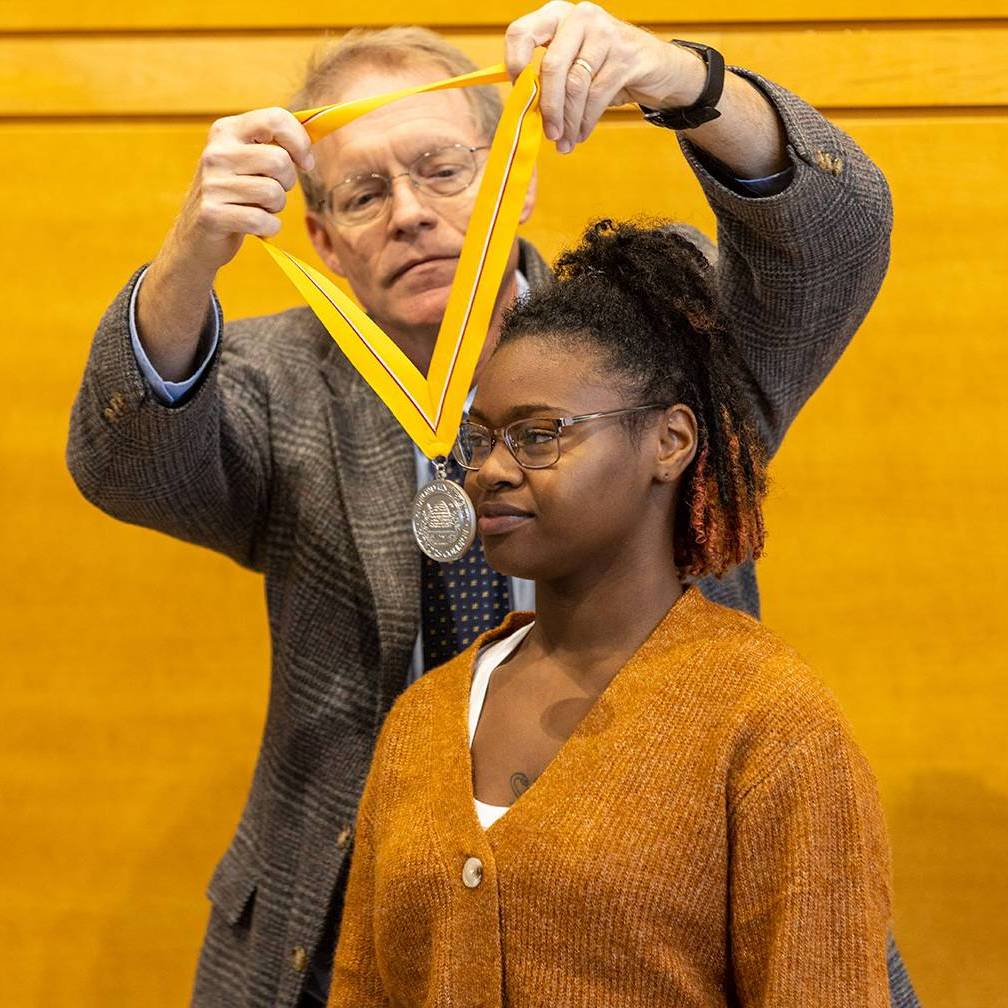Radford University
Honors College
Honors at Radford University is an academic program and vibrant community defined by intellectual curiosity and active engagement in the educational process. We are an academic program and social community designed to support your pursuit of excellence.

Curriculum Overview:
- Graduate as Highlander Honors Scholars
Complete 27-credit hour curriculum
Highest academic distinction - Complete 15-credit honors curriculum
Graduate with the Highlander Honors Distinction - Select one of three honors minors
Some credits may meet other requirements
Students admitted to the Honors College are eligible for many benefits, including smaller classes, honors housing, honors advising, and a study abroad scholarship!
The Honors College at Radford University is a member of the National Collegiate Honors Council, the Southern Regional Honors Council and the Virginias Collegiate Honors Council.
Contact Us
160 Floyd Hall
P.O. Box 6971, Radford, VA 24142
P.O. Box 6971, Radford, VA 24142
- Phone:
- 540-831-6125
- Email:
- honors@radford.edu